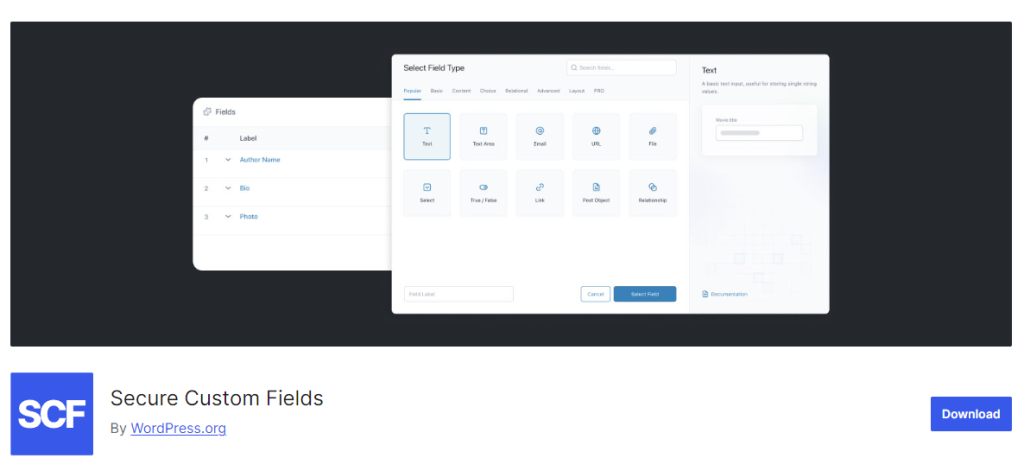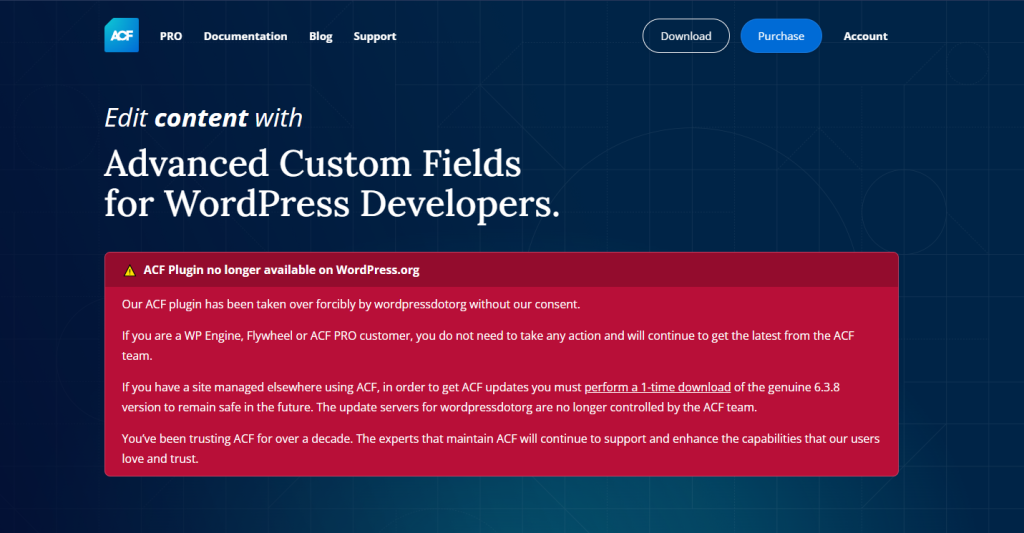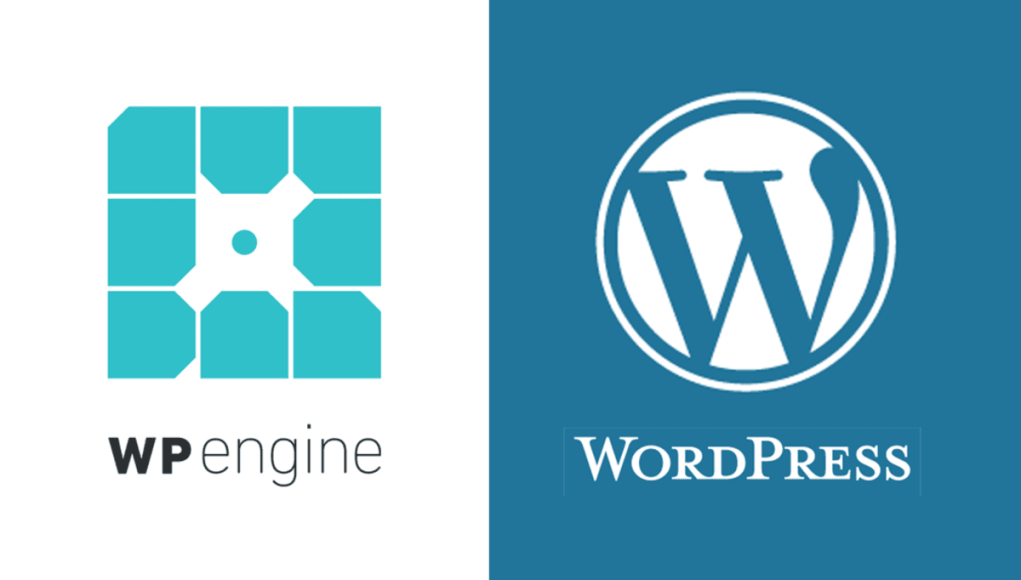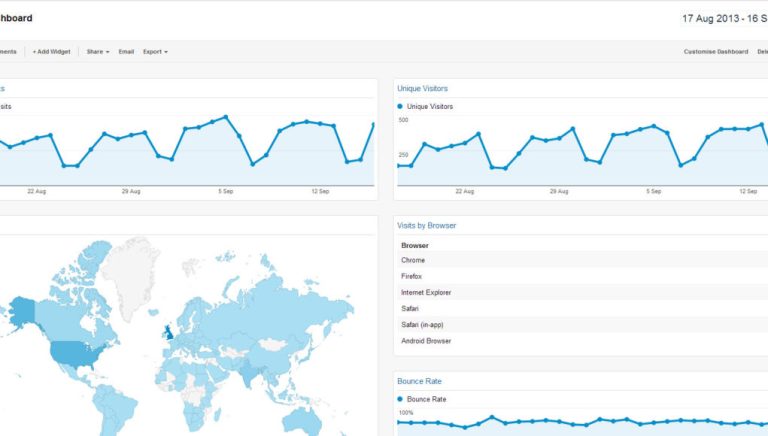The WordPress ecosystem, long a symbol of open-source collaboration and community, has been thrown into turmoil following a dramatic conflict between WordPress co-founder Matt Mullenweg and the hosting giant WP Engine. The conflict, which revolves around the controversial takeover of the popular Advanced Custom Fields (ACF) plugin, escalated over the weekend and has raised serious questions about ethics, control, and the future of the WordPress ecosystem.
The Forking of Advanced Custom Fields
On October 12, 2024, Mullenweg, acting on behalf of the WordPress security team, announced the forking of the ACF plugin, creating a new version called Secure Custom Fields (SCF). According to Mullenweg, this move was justified to “remove commercial upsells and fix a security problem” within ACF. This decision invoked point 18 of the plugin directory guidelines, which allows the WordPress.org team to remove or change a plugin without the developer’s consent under specific circumstances.
This event is highly significant because ACF, a plugin that allows developers to create custom fields in WordPress, has been a staple tool in the community for years, with millions of active installations. It’s one of WP Engine’s most high-profile acquisitions. By forking ACF and renaming it SCF, WordPress automatically pushed updates to millions of users, transitioning them from ACF to SCF, which no longer includes commercial elements or upsells.

However, the controversy surrounding this fork is multi-layered and steeped in an ongoing legal dispute between WP Engine and Mullenweg’s Automattic, the company behind WordPress.com. WP Engine has accused Mullenweg of expropriating the ACF plugin as part of a broader strategy to damage WP Engine’s business.
Legal Disputes and Escalation
The conflict between WP Engine and Mullenweg had already reached a boiling point before the forking of ACF. WP Engine had filed a lawsuit against Mullenweg and Automattic, accusing them of anti-competitive practices, and WP Engine had been banned from accessing WordPress.org resources for distributing plugins.
Following the ACF takeover, WP Engine’s team expressed outrage, claiming that WordPress.org had “unilaterally and forcibly” taken the plugin without their consent. They emphasized that in the 21-year history of WordPress, no plugin had ever been removed from its creator under such circumstances. This was a violation of trust, they argued, and set a troubling precedent for open-source projects.
WordPress.org responded by downplaying the gravity of the incident, noting that similar actions had been taken in the past, though not on this scale.
Security Concerns and Controversial Justifications
One of the key justifications Mullenweg provided for forking ACF was a supposed security vulnerability in the plugin. However, Tim Nash, a WordPress security consultant, pointed out that this vulnerability had already been patched by WP Engine’s team before the fork, leaving many in the WordPress community questioning whether the fork was truly necessary for security reasons.
The official statement from Mullenweg suggested that WP Engine’s legal actions left WordPress.org with no choice but to fork the plugin. Yet, this explanation was seen by many as a thinly veiled attempt to use security as an excuse to strip WP Engine of one of its valuable assets, triggering a wave of discontent within the WordPress developer community.
WP Engine’s Response and Community Backlash
In response to the SCF announcement, WP Engine issued strong statements condemning the move. ACF product manager Iain Poulson described Mullenweg’s actions as an “extraordinary abuse of trust” that threatened to harm the entire WordPress ecosystem. WP Engine also criticized the ethics of the takeover, pointing out that millions of users had unknowingly been transitioned to SCF without proper consent or communication.

The conflict even reached WordCamp Sydney, where WP Engine’s sponsorship was suddenly revoked, and a new affiliation checkbox was added to the WordPress.org login process, requiring users to confirm that they were not affiliated with WP Engine in order to access their accounts. These measures further isolated WP Engine from the WordPress community.
The WordPress community has been divided over these actions. Some members of the community see the move as a power grab, while others are defending Mullenweg’s right to maintain the integrity of the WordPress ecosystem. Prominent voices, such as Ruby on Rails creator David Heinemeier Hansson, have weighed in, criticizing the weaponization of open-source code registries and calling for reconciliation rather than further escalation.
Ethical Implications and the Open-Source Debate
The forking of ACF has raised serious ethical concerns within the open-source community. At its core, open-source software is built on the principles of collaboration, transparency, and shared ownership. However, the WordPress vs. WP Engine conflict has exposed potential vulnerabilities in this model when commercial interests come into play.
David Heinemeier Hansson, in his open letter, called for a halt to the conflict, warning that using open-source projects as leverage in commercial disputes could lead to a breakdown of the trust that has allowed the open-source community to thrive. He drew parallels to the infamous SCO-Linux dispute from the early 2000s, urging Mullenweg not to tarnish WordPress’s legacy by engaging in such practices.
The Path Forward: Forking and Legal Risk
While forking is not new to the WordPress community—WordPress itself was forked from b2/cafelog—this incident has brought the debate over forking to the forefront. Many are asking if WordPress.org can be trusted to remain neutral in disputes between commercial players and community contributors. Others are concerned about the broader legal risks that may arise if forking becomes a weaponized tool in business conflicts.
As the conflict continues, the future of ACF and SCF remains uncertain. WP Engine has made it clear that it will continue to support ACF through its own distribution channels, while WordPress.org pushes SCF. Users are now faced with a choice: stick with the original ACF or transition to SCF through automatic updates.
Conclusion: A Divided Community, An Uncertain Future
The WordPress vs. WP Engine saga is far from over, and its implications for the WordPress ecosystem are profound. What started as a legal dispute between a CMS giant and a hosting provider has snowballed into a broader ethical debate about the open-source community’s future. The aggressive forking of ACF has exposed the power dynamics at play in the WordPress ecosystem, prompting users, developers, and stakeholders to reevaluate their trust in the platforms they rely on.
The situation serves as a reminder that open-source software, while designed to be community-driven, is not immune to the pressures of commercial interest and legal conflict. As the WordPress community grapples with the fallout, the future of both ACF and the platform as a whole remains uncertain. For now, both sides appear entrenched in their positions, and the path to resolution seems distant.







